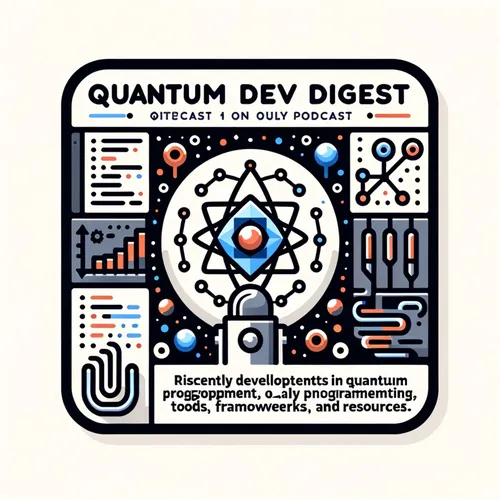HyperQ: Quantum Computing's Cloud Revolution Begins
- Author
- Quiet. Please
- Published
- Wed 13 Aug 2025
- Episode Link
- https://www.spreaker.com/episode/hyperq-quantum-computing-s-cloud-revolution-begins--67356942
This is your Quantum Dev Digest podcast.
This is Leo, your Learning Enhanced Operator, and today on Quantum Dev Digest, I want to take you right to the heart of the action—a place where the once-impenetrable walls of quantum computing just shifted forever, echoing with the resonance of a historic leap. Imagine a quantum computer, not as a monolithic machine serving one solitary genius locked away in a lab, but as a dynamic marketplace of minds, each running their programs in parallel. That’s the reality Columbia Engineering just unveiled with their HyperQ system—quantum computing’s own version of cloud virtualization.
Here’s why this matters. Traditionally, quantum computers have been single-user bottlenecks. Picture a single tollbooth on a superhighway; no matter how advanced your car is, everyone waits in line for their turn. With HyperQ—recently demonstrated to the world—multiple users can share the same quantum processor, running their experiments simultaneously. It’s like replacing that lonely tollbooth with a fleet of smart gates that open for everyone at once, eliminating wasted time and letting innovation flow on all lanes.
Let’s put this in more relatable terms. Think of it like upgrading from a personal piano to an orchestra that anyone can conduct from anywhere. Every researcher, whether in Helsinki or Johannesburg, now has the keys to the instrument and can compose at will. And just as a symphony needs careful tuning, advanced error correction—spearheaded by leaders like Daniel Lidar at USC—acts as our piano tuner, ensuring that the music of quantum computations remains harmonious and not lost in a discord of decoherence.
But the power of this breakthrough goes even deeper. Quantum computers thrive on principles like superposition and entanglement, which let them explore many solutions simultaneously. Instead of checking every lane in a maze one by one, they race down all possible paths at once—imagine having your cake and eating it, too. Now, this orchestration becomes accessible to many, not just a privileged few, accelerating everything from drug discovery to climate simulations, logistics, and finance.
And as we watched ETH Zurich’s team levitate nanoparticles into pure quantum states at room temperature this week, the metaphor becomes even more vivid. It’s as if we’ve built a new kind of cargo ship—able to carry more while burning less fuel, opening whole new journeys in basic research, medicine, and navigation. All these advances reflect how the quantum world, once as intangible as a distant star, is being woven into the fabric of our everyday lives.
So as the world races toward industrial-scale quantum computing, with powerhouses like IBM and Google in the mix, HyperQ’s virtualization marks a new era. The age of isolated breakthroughs is over. We’re entering a period of collaborative quantum acceleration, where each of our discoveries feeds the global symphony.
If you want to dive deeper or have a burning quantum question, drop me a line at [email protected]. Don’t forget to subscribe to Quantum Dev Digest. This has been a Quiet Please Production—find out more at quietplease dot AI.
For more http://www.quietplease.ai
Get the best deals https://amzn.to/3ODvOta
